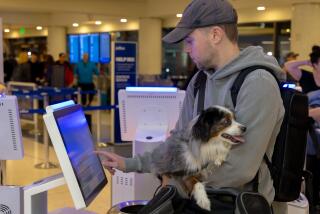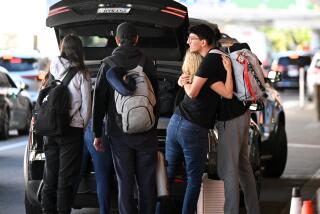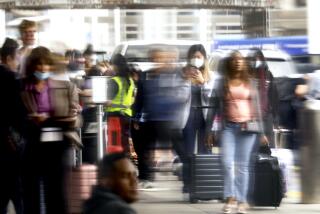Post-9/11 drop in air travel linked to delayed flu
- Share via
Air travel has long been suspected of playing a role in flu’s gradual spread around the globe each year. But Boston researchers said last week they’ve finally documented it.
The drop in air travel after the Sept. 11, 2001, terrorist attacks seemed to delay that winter’s flu season by about two weeks.
“This is the first time that a study’s been able to show a direct link between the numbers of people traveling and the rate of spread of a virus,” said John Brownstein, an epidemiologist at Children’s Hospital Boston who led the new research.
“These data show such a striking effect,” added Dr. Kenneth Mandl, co-author of the research and a pediatric emergency physician also at Children’s Hospital.
Other scientists stress that the study doesn’t prove restricting air travel really helps in the long run; there was no drop in the number of deaths, only a delay. If a pandemic were to strike, the question is whether a mere two-week delay would outweigh the economic effect of travel restrictions.
“You wouldn’t want to have people look at this and say, ‘Ah, this is overwhelming evidence that if the pandemic occurs, we should shut down air travel,’ ” said Dr. Anthony Fauci, director of the National Institute of Allergy and Infectious Diseases, the government’s chief influenza specialist.
“What does it buy you? That’s the real critical issue.”
Brownstein and Mandl analyzed government records of deaths attributed to flu and pneumonia from nine U.S. regions between 1996 and 2005.
During the first five flu seasons, flu-attributed deaths consistently peaked on or around Feb. 17. But in the 2001-02 flu season, mortality didn’t peak until March 2, almost two weeks later, they reported in the online science journal PLoS Medicine.
Also, for each flu season, the September volume of international passengers most strongly predicted when U.S. flu mortality would peak. In September 2001, that volume dropped 27%.






